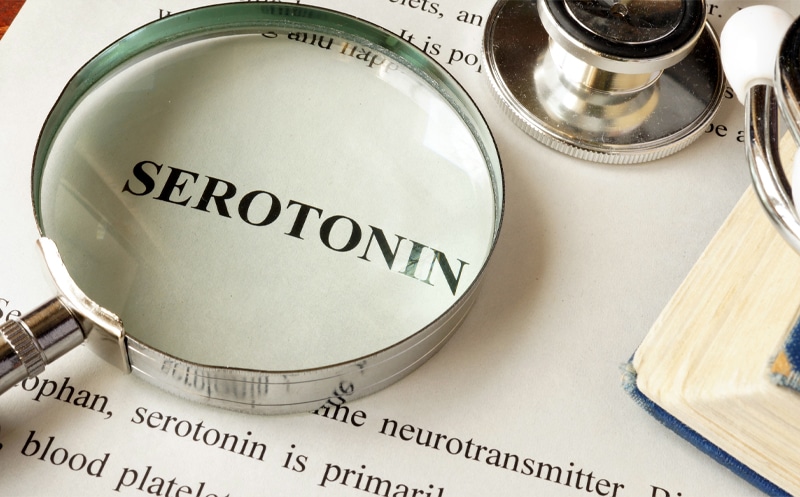Happiness is defined as the state of being happy, the state of contentment, and well-being. Psychology defines the feeling of happiness as the frequent experience of positive emotions, including pride, joy, and interest, along with a decrease of negative emotions like sadness, anger, and anxiety. Happiness can be considered an as an appreciation of life and positive emotions.

The Brain and Happiness
The frontal lobe, the area of the brain located behind your forehead, is responsible for your behavior, personality, voluntary movements, and learning. This area of the brain allows us to imagine things without ever experiencing them. Our brain has the ability to experience two types of happiness – natural happiness and synthetic happiness. Natural happiness occurs when we get something we want. Synthetic happiness occurs when we do not get what we want, but we remain happy, i.e., finding a silver lining in a bad situation.
Happiness is not about getting what you want; instead, it is learning to enjoy what you have. Natural happiness relies on external factors to bring you joy. Synthetic happiness relies on internal factors to promote happiness. Happiness in life incorporates both natural and synthetic happiness.
Happiness and the Chemicals Found in the Brain
Several chemicals in the brain affect your mood and happiness. These chemicals include serotonin, dopamine, and oxytocin. Let’s take a look a each of these chemicals and how you can increase your production of these mood lifting chemicals.

Serotonin
Most people have heard the word serotonin, but do not know that serotonin offers mood boosting effects and increases happiness. Here are some things you can do to boost the production of serotonin.
- Gratefulness – Practicing gratefulness and focusing on positive memories can help boost your serotonin levels.
- Vitamin D – Vitamin D is used by the body to produce serotonin. Setting outdoors without sunscreen for 15 to 20 minutes each day will ensure you are getting an ample amount of vitamin D.
- Exercise – Low intensity exercise like walking helps your body release serotonin.
Dopamine

Dopamine is a brain chemical that increases your drive to accomplish a goal so you can experience pleasure, which is why dopamine is often referred to as the pleasure hormone. Here are a couple of ways to increase your dopamine levels.
- Setting Goals – Set measurable goals that you can achieve each day. For example, setting a goal of making your bed each day can be rewarding and increase your dopamine levels naturally.
- Exercise – Exercise, especially aerobic activity like swimming and jogging, increases the amount of dopamine. Dopamine levels increase as serotonin levels increase.
Oxytocin
Oxytocin is released when you experience physical contact. This hormone is often referred to as the love hormone. Oxytocin is responsible for providing feelings of trust and love. The two top ways to increase oxytocin is:
- Massage – Getting a massage provides you with prolonged physical touch, which causes the body to release oxytocin.
- Snuggling – Cuddling or hugging your loved ones can also cause the body to release oxytocin.
Research on Happiness
Harvard university has been studying happiness for the last 75 years. The study began in 1938 with a group of students. Over the years, more participants have been included. The research group interviews participants, completes brain scans of the participants, and studies the participants’ medical records every two years. The findings from this study indicate people are happier and healthier when they have healthy relationships. Some lessons about relationships from this study include-
- Being Around People Is Not Enough – Did you know that you can be surrounded by people and still be lonely? Having a lot of friends doesn’t ensure happiness, having meaningful relationships is what counts.
- Relationships Are Vital to Your Health – Meaningful relationships with friends and family members protect the body and the mind.
When people have close relationships and friends to lean on, they experience more happiness, less sickness, and more longevity and well-being.
Some common suggestions to develop deep relationships include-
- Put down your phone, tablet, or computer and spend time face to face with others.
- Go out and do things together with friends and family.
- If you need to make new friends, try joining a group or learn a new skill.
Increase Your Feelings of Happiness
There are many different ways to increase your happiness, including-
- Practicing Gratitude – When you practice gratitude, you will experience more happiness, joy, optimism, pleasure, and other positive emotions. The thoughts we have, our perception of how things should be, and the way we see the world contribute to our overall happiness. Learning to look for blessings will increase your overall happiness.
- Mindfulness – Mindfulness is a technique that helps you focus on the present, rather than being distracted by memories of the past or worries of the future. When you focus on the present, your happiness increases and your stress levels decrease.
- Nature – Research has shown that connecting with nature makes us happier and healthier. One study involved having participants going out into nature every day for 30 days. The participants were asked to complete the study’s survey at the beginning and the end of the study. The survey included questions about the way the participants interacted with nature along with questions about their happiness and health. The study showed that the participants’ happiness and health increased as they spent time outdoors in nature.
- Giving – Individuals who are wealthy or who have won the lottery are not happier than others. Wealth and material goods do not lead to happiness. Actually, studies have shown that those who give away possessions and wealth experience improved mental heal and increased longevity. Furthermore, being charitable increases your happiness.
Cultivating happiness is possible. The following eight tips can help you improve your health, enhance your happiness, and increase your longevity.
- Act happy
- Become more mindful
- Control your time
- Get enough sleep and exercise
- Give attention and time to your friends and family
- Give more of your time and money to others
- Practice gratitude
- Savor each moment
Our health coaches are eager to help you put your best foot forward and discover how happiness can lead to healthiness. Contact us today to schedule your appointment to see how we can coach you toward healing and increased longevity.

























